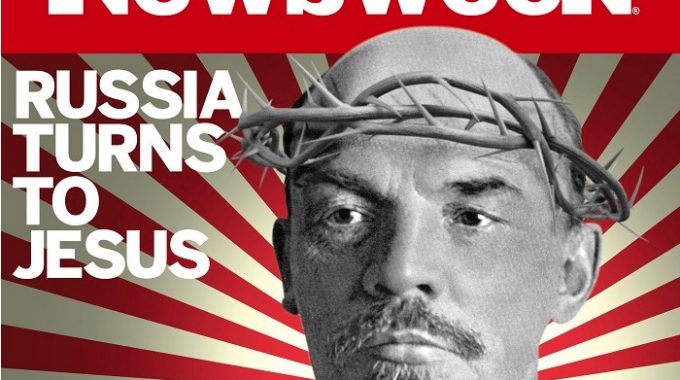
A plea from Ukraine
Overshadowed by the refugee crisis since the summer, Ukraine was back in the headlines last week. The Dutch Safety Board presented the long-awaited conclusions of its 15-month investigation into the Flight MH17 crash on 17 July last year: the Malaysian Airlines Boeing 777 was hit by a Russian-made Buk missile over eastern Ukraine, causing the deaths of 283 passengers, including 80 children and 15 crew members.
Questions however about where exactly the Buk had been launched, and who was to blame, remain the focus of ongoing investigations. The Russians blame the Ukrainians. The Ukrainians accuse the pro-Russian separatists. One theory circulating in Ukraine is that Putin actually had intended to shoot down a Russian plane to give him an excuse to send his army into eastern Ukraine as far as the Dnieper River which runs right through Kyiv. The bumbling officer who shot the wrong plane and robbed Putin of his ploy was despatched to Siberia for execution, so the rumour goes.
Will we ever know the truth? Will there ever be justice?
The bizarre developments in that part of Europe leave many of us confused. Believers on both sides of the disputed border disagree starkly. Many in Russia today view Putin as a heroic defender of orthodox Christian values against the immorality and corruption of the materialistic West.
Brotherhood
Newsweek magazine ran an arresting cover last May with a thorn-crowned Lenin, suggesting that Russia was ‘turning to Jesus’. The lead article quoted Zyuganov, veteran leader of Russia’s modern-day Communist Party, as saying that both Lenin and Jesus had tried to save humanity with a message of ‘love, friendship, and brotherhood’. The Soviet Union had been, he claimed, an attempt to establish ‘God’s Kingdom on Earth’.
Some say Zyuganov is just a professional politician trying to unite the Leftist and conservative electorate. Yet, the article continues, Russian Orthodox Church officials also display ambiguous attitudes towards the Soviet era. One spokesman for the Church is quoted as saying: ‘While there was no place for God in the Soviet system, Christian values were far more apparent under Communist rule than in the West, where material wealth has always been of utmost importance.’
One thing is clear to Ukrainian believers: Putin has succeeded in uniting their country–against himself, and against Russia. He has succeeded in uniting the diverse churches, from Pentecostal to Orthodox, in practical service for the Ukrainian people.
(Prior to Ukraine’s independence from the Soviet Union, the country was generally called ‘the Ukraine’ in English, meaning ‘borderlands’. After the Declaration of Independence in August 1991, the government requested the English-speaking world to change its usage from ‘the Ukraine’ to ‘Ukraine’, as they considered the article denigrated their country by identifying it as ‘the borderland’ of Russia.)
A few days before the Dutch report was presented, I spoke with Anatoly Kaluzhnyi, the chairman of the Council of Independent Evangelical Churches of Ukraine, at the EEA General Assembly in Germany (see last week’s ww). His plea was that the suffering of the Ukrainian people would not be forgotten as world attention shifted to the Syrian refugee crisis.
Ukraine was still in the midst of a terrible ordeal, he explained, with more than a million having to flee their homes in Eastern Ukraine since hostilities began. Eight thousand had been killed since May last year. Many thousands of displaced had lost homes, possessions, clothes and family. They needed spiritual support. Thousands more were forced to keep on living right in the region of military action with fear as a constant companion. Uncontrolled rebels groups, he reported, had seized and destroyed dozens of churches, persecuting, torturing and killing clergy of all denominations.
Broken hearts
Anatoly handed me a joint statement co-signed by himself and the head of the Ukrainian Orthodox Church of the Kyiv Patriarchate, Patriarch Filaret, which read in part:
‘The Ukrainian believers have left behind all minor discrepancies to tearfully unite their broken hearts in prayer to serve the Ukrainian people. Being a Christian is today a synonym of practical ministry we are committed to in terms of health, stamina and wealth. The words of the Scriptures ‘He has scattered abroad his gifts to the poor; and his righteousness endures for ever‘ are vivid and living for us at the moment (2 Cor. 9:9)… .
‘The churches of Ukraine are urging all brothers and sisters in Christ Jesus to take adequate part in practical service to the Ukrainian people.’
Anatoly grasped my hand and said with intensity and a hint of desperation: ‘We need your prayers. But more than that, we need your help. Please pass on this plea to your people. Don’t forget our plight.’
I promised to pass on this plea. Those able to offer practical help and engagement can contact Anatoly at office@newlife.kiev.ua.
Till next week,
Jeff Fountain

This Post Has 0 Comments